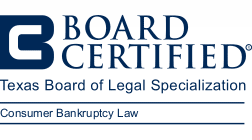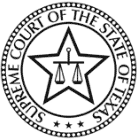What Are Adversary Proceedings in Bankruptcy?
 Whether you file for Chapter 7 or Chapter 13 bankruptcy, either chapter follows a fairly linear process. However, sometimes questions, disputes, or unexpected issues arise in the course of your bankruptcy. The process whereby these disputes are addressed in bankruptcy is called an adversary proceeding, and it is a type of lawsuit that is part of the bankruptcy case. Adversary proceedings may only be filed in certain specific circumstances and only by interested parties. They follow many of the same rules as regular lawsuits, including formal complaints, motions, and court hearings. An experienced Liberty County, TX bankruptcy attorney can represent you throughout the bankruptcy process and in an adversary proceeding.
Whether you file for Chapter 7 or Chapter 13 bankruptcy, either chapter follows a fairly linear process. However, sometimes questions, disputes, or unexpected issues arise in the course of your bankruptcy. The process whereby these disputes are addressed in bankruptcy is called an adversary proceeding, and it is a type of lawsuit that is part of the bankruptcy case. Adversary proceedings may only be filed in certain specific circumstances and only by interested parties. They follow many of the same rules as regular lawsuits, including formal complaints, motions, and court hearings. An experienced Liberty County, TX bankruptcy attorney can represent you throughout the bankruptcy process and in an adversary proceeding.
What Is an Adversary Proceeding?
An adversary proceeding is essentially a lawsuit filed within a bankruptcy case. Unlike the main bankruptcy case, which typically involves administrative matters and routine motions, adversary proceedings address disputes that cannot be resolved through the standard bankruptcy process.
Common Types of Adversary Proceedings
Several situations can trigger an adversary proceeding. Creditors may file suit to challenge the dischargeability of specific debts, arguing that certain obligations should survive bankruptcy due to fraud, willful misconduct, or other exceptions. For example, if a creditor believes you incurred debt through false pretenses or failed to disclose assets, they might initiate an adversary proceeding to prevent that debt from being discharged.
Fraudulent transfer actions allow trustees or creditors to recover assets transferred for inadequate consideration before bankruptcy, particularly if you were insolvent or became insolvent due to the transfer.
Why Do Adversary Proceedings Matter?
If you are involved in a bankruptcy it is important to understand that adversary proceedings are serious legal matters. They are not handled through simple paperwork like much of the bankruptcy process. They involve court appearances, evidence, legal arguments, and strict deadlines. Failing to respond properly to an adversary complaint can result in losing important rights, including the right to discharge certain debts.
Who Can File an Adversary Proceeding?
Adversary proceedings can be filed by different parties in a bankruptcy case, including by the debtor, meaning the person who filed for bankruptcy, creditors, and the bankruptcy trustee. For example, the debtor might file an adversary proceeding against a creditor who continues collection actions in violation of the automatic stay. Or a trustee might sue to get back property that you improperly transferred to someone else before filing.
Call a Liberty County, TX Bankruptcy Lawyer
While the bare bones of the bankruptcy process are fairly straightforward, bankruptcy law is complex. When disputes arise and a creditor files an adversary proceeding, or in cases when it is in your best interest to file one, you need experienced and compassionate Houston, TX bankruptcy representation. Call The Fealy Law Firm, PC at 713-526-5220 for a complimentary consultation.












